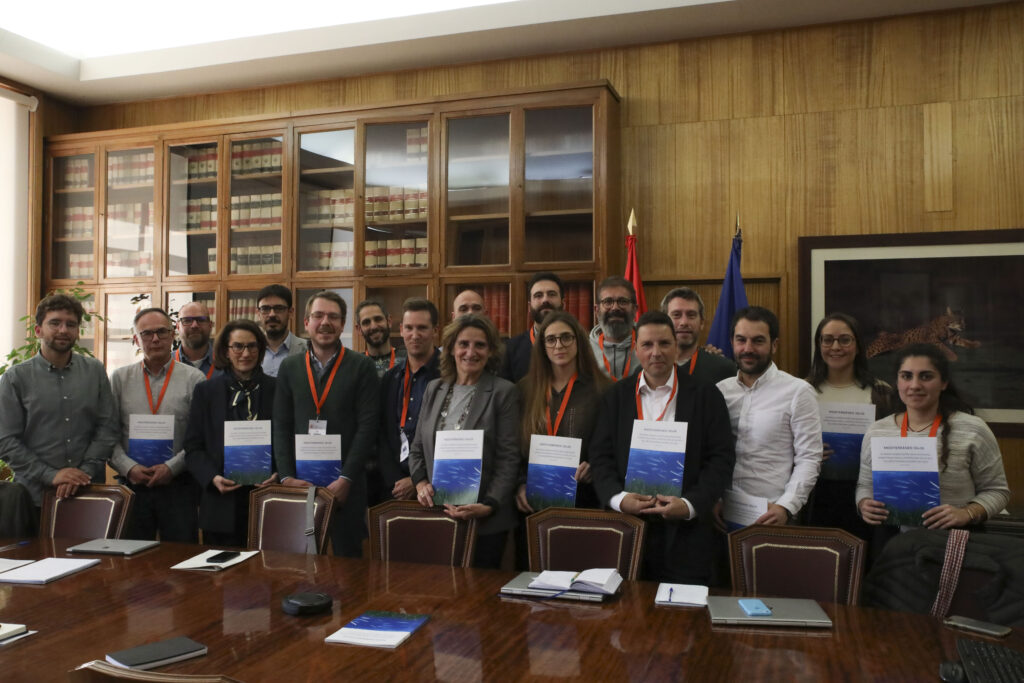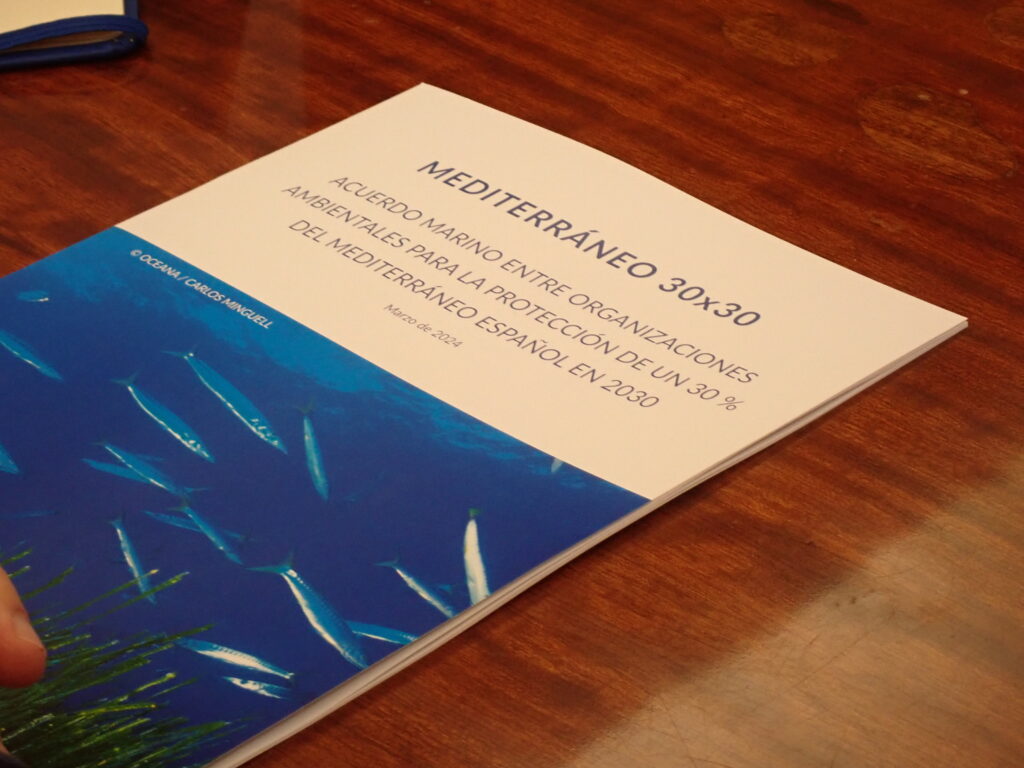- The organizations are calling for actions to advance the strict protection of at least 10% of the Mediterranean, a commitment made by Spain.
- Additionally, they request participatory governance for the development, implementation, and evaluation of the management plans for these areas.
We will continue with our commitment and redouble our efforts to achieve the effective protection of 30% of the Spanish Mediterranean by 2030. This is what fifteen environmental organizations are calling for in the document they presented to the Ministry for Ecological Transition and the Demographic Challenge. The Third Vice-President and Minister for Ecological Transition and the Demographic Challenge (MITERD), Teresa Ribera, attended the meeting with the organisations together with the Director General of Biodiversity, María Jesús Rodríguez de Sancho, and Fernando Magdaleno, Deputy Director General of Terrestrial and Marine Biodiversity.
Representatives from environmental entities ANSE, ClientEarth, Ecologistas en Acción, Marilles Foundation, GEN-GOB, GOB Mallorca, GOB Menorca, Greenpeace, OceanCare, Oceana, Save the Med, SEO/BirdLife, Tursiops, Vell Marí, and WWF met this morning with MITERD to acknowledge the progress made so far, with 21% of marine surface designated as protected in Spain, and to emphasize the importance of Spain continuing to advance towards meeting its international commitments to protect the marine environment.
During the meeting, representatives of the various organizations stressed the importance of Marine Protected Areas (MPAs) for the conservation of the Mediterranean Sea: “It is urgent that Spain meets its international commitments for marine protection. These agreements set the need to achieve 30% of seas under effective protection and management, as well as ensure that 10% of the sea is under strict protection, free from anthropogenic activities that could compromise its environmental health,” they stated.
They also highlighted the importance of the Ministry developing ambitious and participatory management plans and allocating “the necessary resources to implement them so that this protection is real and effective.”
The proposal titled Marine Agreement between Environmental Organizations for the Protection of 30% of the Spanish Mediterranean includes actions to ensure the proper management of Marine Protected Areas (MPAs). The document emphasizes the importance of creating and implementing effective management plans and underscores the need to designate new protected areas and allocate the resources necessary to identify additional biodiversity hotspots beyond the 30%, if needed.
The document also outlines actions to restore ecosystems and recover vulnerable species. Among the proposed objectives are the development, publication, and implementation of recovery plans for vulnerable or endangered species such as the angel shark (Squatina sp), the noble pen shell (Pinna nobilis), the Balearic shearwater (Puffinus mauretanicus), and the loggerhead sea turtle (Caretta caretta).
It is noteworthy that some of these plans are already being processed, demonstrating the active commitment of all stakeholders to the conservation of marine biodiversity.
The organizations emphasize that protection will only be effective if it is backed by the necessary resources to ensure proper management of these areas, along with effective monitoring and surveillance. Without forgetting the need to raise public awareness of the values of MPAs to engage the population in their protection, they request that by 2030, all MPAs designated by 2025 have approved or revised management plans with ambitious goals and concrete measures.
Among other measures, the agreement proposes actions to minimize the impact of bycatch in fishing gear, trawling, and ghost fishing; adopt measures to reduce underwater noise caused by maritime traffic and other civil and military activities; take effective actions to prevent the deaths of whales and other marine species due to ship collisions; and improve the quality of coastal waters by aiming for zero discharge and enhancing sewage treatment systems.
Finally, the proposal emphasizes the need for participatory governance in the designation, development, implementation, and evaluation of the management plans for Marine Protected Areas as a methodological foundation to achieve protection and conservation goals.
A great biodiversity under threat
The current dual crisis—climate change and biodiversity loss—poses a severe threat to the Mediterranean Sea. With over 17,000 marine species (18% of the known species worldwide), the Mediterranean is one of the most biodiverse regions on the planet.
However, it is also one of the most threatened. Average temperatures across the entire basin are already 1.5°C above pre-industrial levels, and the decline of its ecosystems, such as seagrass meadows, is now a reality.
The Mediterranean also faces significant impacts from mass tourism, intense maritime traffic, and coastal urban development, making it one of the most overexploited seas in the world. Furthermore, around 150 million people live by and depend on this sea. The document presented today is based on the conviction that the proposed environmental policies will be crucial in laying the foundation for a future where the Mediterranean thrives and continues to be a source of life, well-being, and culture for our society.

